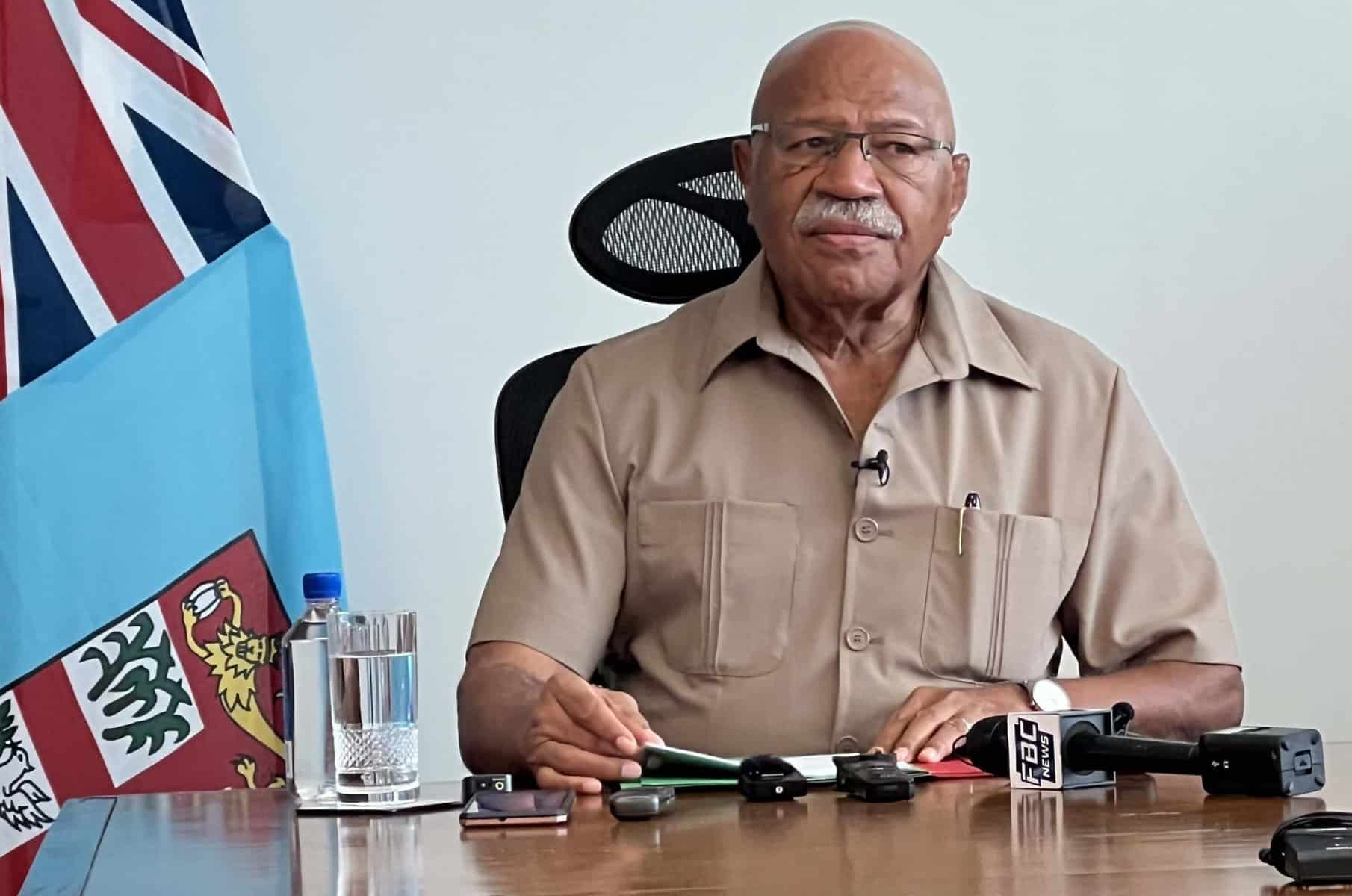Bilateral relations with Kiribati was one of the key issues discussed by Fiji cabinet ministers in their meeting this week, including deeper cooperation on fisheries.
Fiji Prime Minister noted: “Kiribati is also resource-rich, especially in fisheries, Fiji will pursue possible collaboration with the Kiribati Ministry of Fisheries and marine resources in the promotion of fishing ventures between the two countries.”
Fishing license revenues are worth an average of 66% of GDP annually.
Cooperation on fisheries in areas such as post-harvest, fishing processing development and marketing, training, joint research and development, joint fisheries conservation and management, and fisheries infrastructure development will be formalised through a Memorandum of Understanding signed by the Fiji Ministry of Fisheries and Marine Resources, Rabuka said.
“Once the two agencies have confirmed the terms of the MOU, it will be tabled in cabinet for decision.”
Prime Minister Rabuka recently led a Fiji government delegation to Kiribati, in his role as Pacific Islands Forum Chair. While Kiribati’s return to the PIF was the key issue, other bilateral issues were also covered.
“We agreed to strengthen our bilateral relations and agreed to revisit the following outstanding bilateral issues: “(1) Air Services Agreement; (2) Development of Kiribati-owned land in Natoavatu, Cakaudrove, Vanua Levu to be a source that will ensure food security for the people of Kiribati; (3) Training opportunities in Fiji specifically for health and education professionals from Kiribati; (4) strengthening the networks with i-Kiribati students who pursue secondary school education in Fiji; and finally, the re-establishment of the Rabi Island Council of Leaders,” Rabuka listed.
MSG sports
Also approved in cabinet this week is a Memorandum of Understanding on Sports Cooperation between the members of the Melanesian Spearhead Group (MSG).
“The aim of the MOU is to strengthen the existing cooperation with the MSG in the sports sector and provide a framework for sports policy development, technical and financial support amongst members,” Rabuka told journalists.
MSG members include Papua New Guinea, Fiji, Vanuatu, Solomon Islands, Indonesia and the New Caledonian independence movement Front de Libération Nationale Kanak et Socialiste (FLNKS).
“The Memorandum of Understanding will encourage the development of sports exchange programmes for capacity building and human resource development, as well as support the financial commitment of hosting sanctioned MSG tournaments,” he said.
The MSG supports several programs, and sports development is an important aspect of work for the Secretariat
Defence cooperation with New Zealand
Rabuka has also revealed that Fiji is seeking a bilateral defence relationship with the government of New Zealand.
“The agreement will allow our two countries’ defence personnel to conduct exchanges, deployments, and exercises in each other’s jurisdiction,” Rabuka said.
“These military exchanges will greatly benefit Fiji in terms of: exposing Fijians troops to New Zealand’s military training methods and standards; interoperability and understanding of New Zealand’s military doctrine; and obtaining funding.”
This Prime Minister adds that the new agreement will also include facilitating the engagement of experts, acquiring skills, and exposing the RFMF to new military equipment and hardware that are otherwise unavailable.
It follows the recent visit of New Zealand’s Chief of Defence, Air Marshall Kevin Short to Fiji.
Local elections
On local issues, Fiji’s Cabinet has approved the return of municipal elections in cities and towns.
A working group chaired by the Permanent Secretary for Local Government, and comprising heads of central agencies, CEOs of municipal councils, and the Fiji Elections Office has been established to make recommendations on: “municipal boundaries, the demarcation of wards for each municipality, the number of councillors for each municipal council, and the necessary amendments to existing legislation.”
In recent years, Fiji’s 13 municipal councils have been run by special administrators, raising concerns about accountability and an erosion of democracy and elections, especially as a pathway for younger candidates.

One Response
Comments are closed.